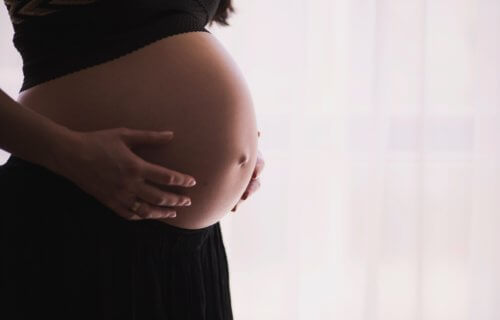NEW HAVEN, Conn. — Pregnant women infected with SARS-CoV-2, the virus that causes COVID-19, are more likely to experience life-threatening complications of pregnancy than non-infected pregnant women. Although the reason for this increased risk is not yet well-understood, a recent study from Yale University suggests that the immune response, and not the virus itself, is likely to be the culprit.
The study, led by Drs. Shelli Farhadian and Akiko Iwasaki, finds that while it is rare to find the virus in the placenta of infected mothers, increased activation of the immune system is observed in this tissue.
“The good news is the placenta is mounting a robust defense against an infection that is far distant, in lungs or nasal tissue,” says Dr. Farhadian in a statement. “On the other hand, the high level of immune system activity might be leading to other deleterious effects on the pregnancy.”
The team looks at blood and placental specimens from 39 pregnant women who delivered during the study period. All of the women were positive for SARS-CoV-2 infection at the time of, or in the one month prior to delivery. Of these, 22 women had symptomatic COVID-19, five of whom were severe enough to require supplemental oxygen or a stay in the ICU. One of the women with severe COVID-19 developed preeclampsia, a life-threatening complication of pregnancy that resulted in the loss of her fetus at 22 weeks.
The first question addressed by the research is whether SARS-CoV-2 can directly infect the placenta. According to the study, the ACE2 protein, which is required for the virus to enter cells, can be found at high levels in the placenta during the first and second trimester. It is virtually absent by the third trimester, however. The researchers suggest this finding could mean that woman are more vulnerable to SARS-CoV-2 infection during early pregnancy.
“It is very important to closely monitor expectant mothers who become infected early in pregnancy,” says Dr. Farhadian.
‘Extremely high levels of immune system activation’
A surprising finding of the study is that full-term placentas collected from women with COVID-19 contain high levels of ACE2 protein. Although the factors driving ACE2 expression during COVID-19 remain unknown, the authors suggest that the protein could be increased as a result of inflammation stemming from the disease itself.
Even though the ACE2 protein is present in the placenta, the researchers report that evidence of the virus itself is rare. Only two of the 15 placentas tested in the study were positive for viral RNA, the genetic material that makes up the SARS-CoV-2 genome. When the analysis is restricted to women who were positive for infection at the time of full-term delivery, viral RNA is found in only one of 11 placentas.
Despite the lack of an active local infection, the study finds that placentas from pregnant women with COVID-19 have extremely high levels of immune system activation. In an extensive analysis, the authors show that a majority of the genes that are activated in the placentas of infected mothers are involved in the immune response to a pathogen. The authors suggest that this demonstrates the capacity of the placenta to sense and respond to a distant infection.
The authors make note of one particular gene that is highly active in the placenta. This gene encodes the information to make a protein called heat shock protein 70 (Hsp70). The authors point out that Hsp70 is shown in other studies to be associated with several complications of pregnancy, including pre-term birth, placental vascular disease, and preeclampsia. Hsp70 levels are also elevated in a life-threatening pregnancy complication of the blood and liver called HELLP syndrome, which has been observed in some pregnant COVID-19 patients.
The authors also point out potential limitations of their study. Since participants did not undergo routine SARS-CoV-2 screening throughout pregnancy, the exact onset of infection relative to the time of delivery is unknown. This also means that a lack of viral RNA in the placentas tested at delivery may not rule out an earlier infection.
Although the immune response in the placenta has not been extensively studied in pregnant women with COVID-19, evidence from this study suggests that heightened immune system activation may contribute to poor pregnancy outcomes.
The study is published in the journal Med.
